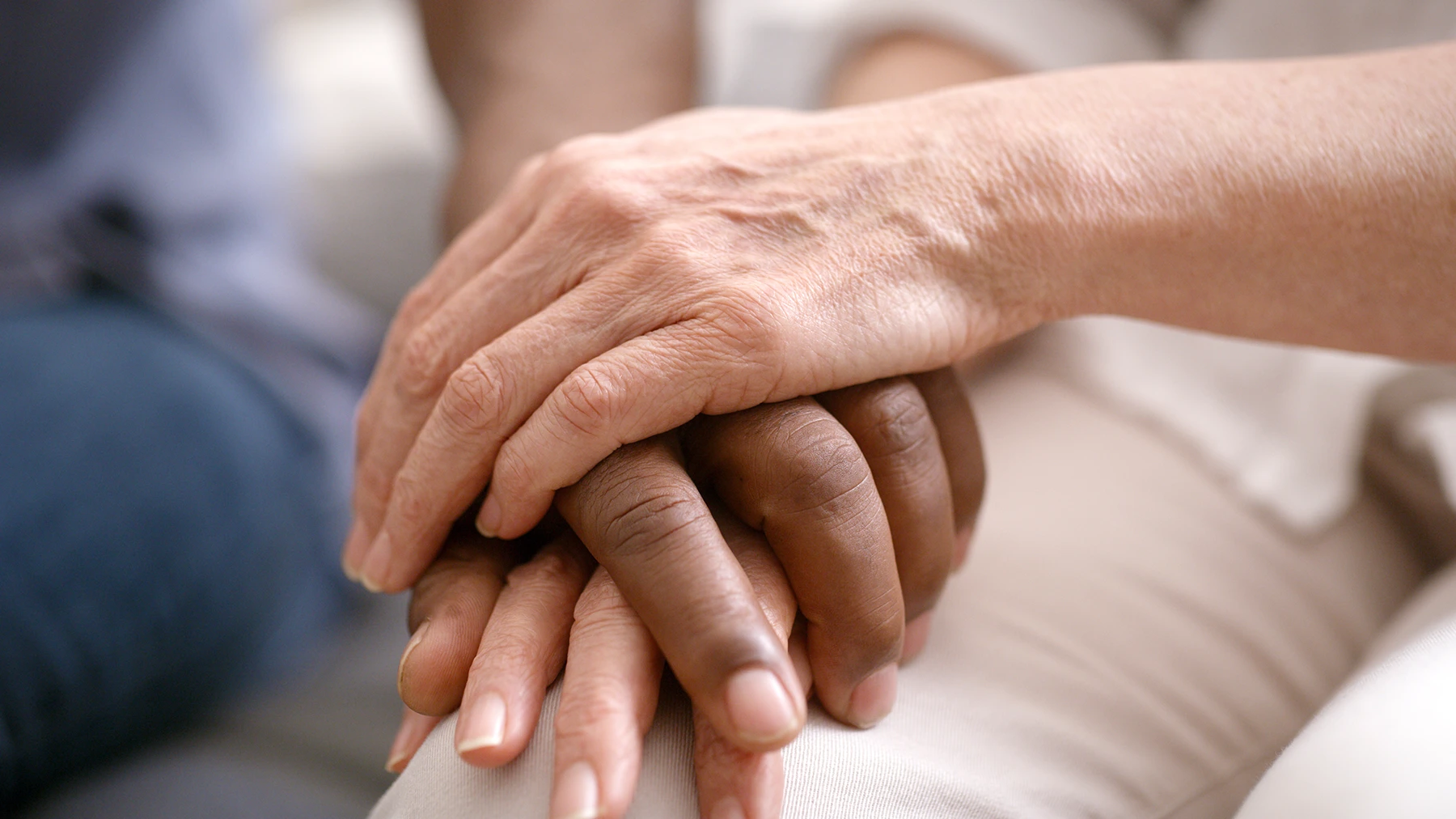Care That Continues: Understanding Hospice and Bereavement Support

Sylvester experts share insights on compassionate care.
With a serious illness like cancer, care often extends far beyond medical treatment. In a Miami Health Talk webinar by Sylvester Comprehensive Cancer Center, part of UHealth – University of Miami Health System, experts emphasize the importance of palliative medicine, hospice care and bereavement support for patients and families navigating complex emotional and physical challenges.
What is palliative care?
Palliative care is a medical specialty that focuses on relieving suffering and improving the quality of life for patients with serious illnesses. It can begin at any age and any stage of disease—even alongside curative treatments.
“Palliative care is my life’s work and my passion,” says Mariana Khawand-Azoulai, M.D., medical director of inpatient palliative medicine at Sylvester. “We take a whole-person approach, addressing pain, symptoms and emotional needs through a team-based model that includes physicians, nurses, social workers, chaplains and psychologists.”
Patients may be referred to palliative care for help managing symptoms like nausea, neuropathy or poor appetite. The team also assists with advanced care planning, helping patients articulate their values and wishes for future medical decisions.
Hospice: comfort and dignity at life’s end
While hospice care shares many principles with palliative care, it is reserved for patients with a life expectancy of six months or less who are no longer pursuing curative treatment.
“Hospice is not about giving up — it’s about living fully and comfortably,” Dr. Khawand-Azoulai explained. “It’s a robust support system that includes medical, emotional and spiritual care, often delivered in the patient’s home.”
Hospice services include 24/7 access to nursing support, delivery of medications and medical equipment, and different levels of care depending on the patient’s condition. Patients can also receive crisis care at home or in an inpatient hospice if symptoms become difficult to manage.
Importantly, patients can continue taking medications for other conditions, such as diabetes or hypertension, while in hospice. And they can change their minds.
“Hospice is not a one-way street,” Dr. Khawand-Azoulai says. “Patients can revoke hospice if their condition improves or if new treatment options become available.”
Dispelling myths about hospice
Dr. Khawand-Azoulai addresses common misconceptions, including the belief that hospice hastens death or requires patients to stop seeing their doctors.
“We do not sedate patients or accelerate the dying process,” she says. “In fact, studies show that patients receiving hospice care may live longer because they’re at home, surrounded by support.”
Grief support for caregivers
Grief doesn’t begin at the moment of death—it often starts with a diagnosis. Wendy Lichtenthal, Ph.D., director of Sylvester’s Center for the Advancement of Bereavement Care, emphasizes the need for emotional support throughout the cancer journey.
“Care doesn’t end when a patient dies,” Dr. Lichtenthal says. “We want families to feel held by their communities and supported by the institution that cared for their loved one.”
Sylvester’s bereavement services include grief therapy referrals, support groups, memorial events and peer support. The center also trains health care providers to be grief-informed and advocates for resources to address emotional needs.
Grief is nonlinear — and normal
Dr. Lichtenthal shares frameworks to help patients and families understand their emotional responses.
“Grief is messy. It comes in waves. There’s no timeline or set of stages,” she says. “Your reactions always make sense, even if they feel chaotic.”
She encourages individuals to find meaning in their losses and to stay connected to their “whys”—the people, causes or beliefs that give life purpose.
“When you feel lost at sea, your ‘whys’ can be your lighthouses,” she says. “They help you steer your ship forward.”
Resources and upcoming events
Sylvester offers a range of grief and bereavement resources, including:
- Counseling and support groups
- Peer support and online education
- Memorial events and webinars
To learn more, visit https://sylvester.org/bereavementcare. Attend the annual Sylvester Cancer Survivorship Symposium on Oct. 29–30, which will share more information on cancer survivorship and grief.
Article was composed with the help of AI based on the embedded UHealth Talk content. Edited by Monica Smith and medically approved by the participating clinicians.
Tags: Cancer patient resources, Coping with loss and grief, Dr. Mariana Khawand-Azoulai, Dr. Wendy Lichtenthal, Emotional support in illness
